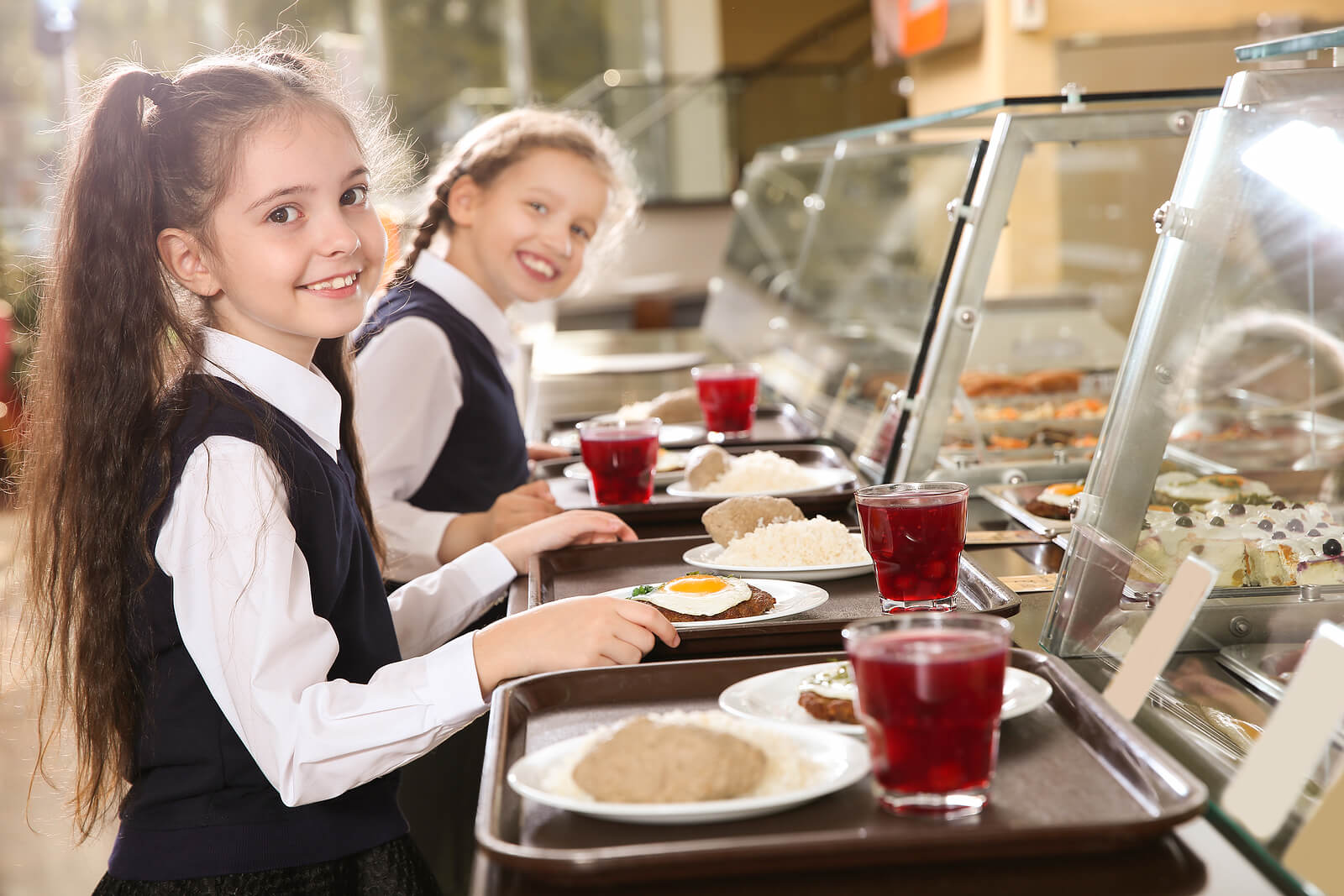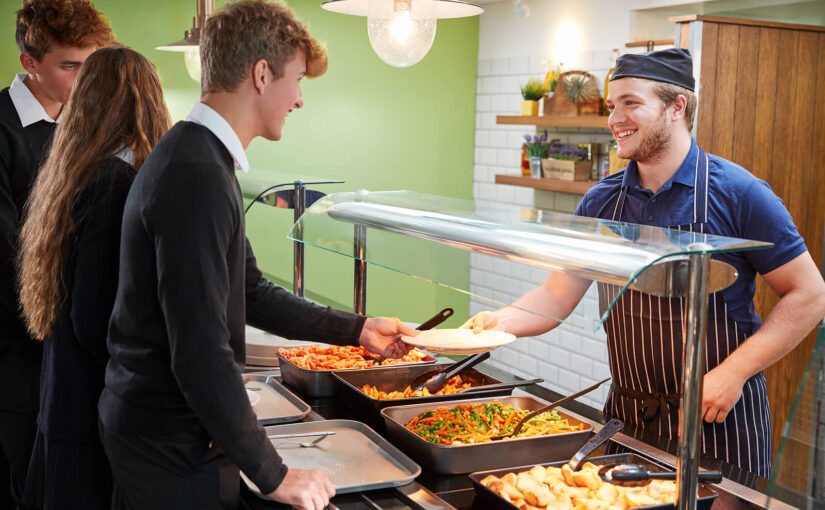School food waste is a significant issue that has plagued the UK’s educational institutions for decades.
If you’re wondering, ‘how much food do schools waste per year?’, you’re in for a shock.
55,408 tonnes of food waste is generated annually by primary schools in England and 24,974 tonnes by secondary schools. That’s a total food waste weight of 80,382 tonnes across England’s schools annually — meaning urgent action must be taken.
Let’s address the reasons behind school food waste before outlining solutions.
Why there’s high food wastage in UK schools
The reasons for food waste in primary and secondary schools are varied and numerous.
There are operational, situational, and behavioural reasons, so let’s break those down a little more, sharing a handful of examples for each.
Operational reasons for food waste in UK schools
Operational reasons for the production of food waste include:
- kitchens catering to an unknown number of pupils
- set portion sizes
- centrally-planned menus not suiting an individual school and its pupils.
Situational reasons for food waste in UK schools
There can be situational reasons for food waste in schools, such as:
- pupils feeling rushed because the school hall is required for afternoon lessons
- an unpleasant dining experience — dining halls are often loud and busy.
Behavioural reasons for food waste in UK schools
Behaviour can contribute to food waste in schools because:
- primary school children, in particular, would rather play outside than eat
- pupils may reject food if they are fussy, it’s unfamiliar, it doesn’t look appealing, or it’s served in an unusual combination
- secondary school pupils sometimes buy a snack instead of a full meal.
UK school food waste solutions

Considering the reasons for food waste across the country’s schools, it’s possible to outline solutions to the problem.
1. Improve education about food waste
Pupils need to understand their role in producing and preventing food waste at school (and home) to feel motivated to make a difference.
Increasing awareness and understanding among pupils leads to them taking a more active role in food waste initiatives.
If you’d like a first-class education in food waste delivered by the experts, we offer highly engaging Forge Education lessons across Yorkshire for KS1, KS2, KS3, and KS4.
2. Improve education about nutrition
Not all pupils will have previously tried all foods offered at the school canteen, so education about food and nutrition can be helpful.
The opportunity for every pupil to try new foods without pressure to eat them would be beneficial long-term but understandably challenging.
It’s also worth noting taste testing would result in temporary inflation of food waste but should then significantly reduce it.
With older pupils’ autonomy, some choose snacks over proper meals, leading to kitchen waste. Enhanced education on nutrition could make a real difference in this outcome.
3. Remove meat from the menu
The number of schools offering only vegetarian meals is rising due to increased knowledge of the meat industry’s environmental impact.
A meat-free diet is healthy and eco-friendly and results in food waste that can all be composted.
Create a large compost bin on the school grounds — it provides a wealth of educational opportunities for the children, and you can use the resulting compost to grow more vegetables.
4. Offer smaller portions
Smaller portions result in less waste left on plates and trays. Offer children less of each food and make it clear they can ask for more should they want it.
Some schools have a ‘no seconds’ policy, which wastes food when pupils could have eaten it. If a student is still hungry and there is enough food spare, let them have another small portion.

5. Monitor food waste and tweak the menu
The only way for a school to know how big its food waste problem is, is to measure it.
Monitor how much food gets wasted in the kitchen and school cafeteria for a set period. For the most accurate data, weigh the waste daily.
Alongside this task, analyse which foods sell and which don’t, and alter the menu accordingly. For example, if nobody orders the tagine, it shouldn’t be on the menu.
Likewise, avoid forcing a dessert on pupils who don’t want one and be flexible with food combinations — if a child asks for a meal without peas, they will not eat the peas.
6. Reduce queues
If pupils queue for a long time to order and collect their food at lunchtime, they will eat quickly and leave food they’d otherwise eat in a rush to get outside to play or socialise.
Long queues also result in reduced lunch options for those at the end of the queue. If the remaining food isn’t what they wanted to eat, they’re more likely to waste it.
A solution for queues is a pre-ordering system, where pupils choose their meals at the start of the school day. Alternatively, consider an order and collect system, which enables children to play while their meal is cooked.
Without the need to queue, children are in the dining hall for less time, which results in more time to socialise and less exposure to the potentially loud dining environment.
7. Cook to order
With pre-ordering comes the ability to cook to order, which can end blind cooking and masses of kitchen leftovers.
Preparing each child’s meal to order will result in minimum kitchen waste and reduced cafeteria waste, as every child has a meal they choose.
UK school food waste recycling
There are many reasons for reducing food waste in schools — the main two are that it’s environmentally responsible and saves the school money.
School food waste recycling is crucial, and food waste bins are necessary. If you currently only have general waste bins, your school will pay more than it needs for waste collections.
Choose a waste management company that recycles its food waste and start reaping the rewards.
If you’re interested in reducing food waste in a restaurant or regular café, we’ve outlined ten easy steps to get you started.

Lucy
Can you recommend sites of good practice on waste reduction? Is food cooked in situ an essential element?
I work with Sheffield Food Partnership on public procurement, school meals and food hubs.